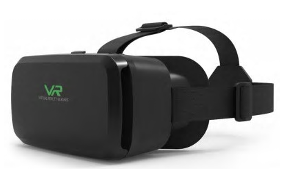Virtual Reality:
Innovative and Engaging Assessment and Intervention for Youth with Neurodevelopmental Disorders
As virtual reality (VR) technology becomes more widespread and affordable, there is growing enthusiasm in its use for clinical purposes. In collaboration with a national leader in medical engineering and technology, our team is creating novel VR tools for assessment and intervention of cognitive traits (executive functions) common in neurodevelopmental and brain-based disorders. Our team is testing the effects of a highly engaging assessment and intervention approach designed to accurately assess and improve executive functioning in youth with various neurodevelopmental and brain-based disorders.
VR provides a cutting-edge mode of assessment and intervention delivery that can significantly improve care in mental health. A key advantage of VR is the immersive experience it creates. This immersiveness is linked to greater sense of engagement and attention than what can be achieved by traditional 2D tasks. The ability of VR to engage several sensory modalities and create a psychological state of “being there” contributes to VR’s greater ecological validity compared to similar tasks in 2D environments. We expect that the immersiveness of VR will make the computer tasks more enjoyable and engaging, which will have a positive effect on motivation, ecological validity of assessment, treatment compliance and effectiveness.



